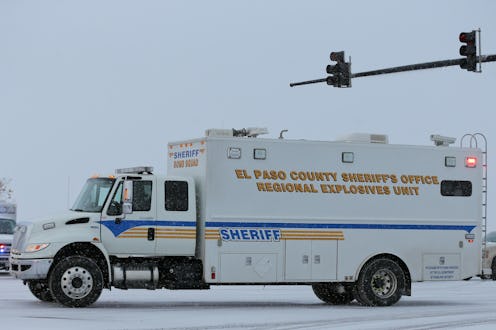News
Colorado Shooting Renews Gun Control Debate
Several questions remain unanswered in the wake of Friday's tragic shooting at a Planned Parenthood clinic in Colorado Springs, Colorado. So far, we know that Robert Lewis Dear, a 57-year-old drifter from North Carolina, surrendered to police at the scene, and will appear in court on Monday. We also know that nine people were injured on the scene, and three people were killed: a University of Colorado at Colorado Springs police officer, a stay-at-home mother of two, and an Iraq War veteran. On the other hand, we still don't know Dear's exact motives, or how he got the gun that he used. Regardless, the violence has reignited a gun control debate that has often centered around Colorado.
According to police, Dear used a rifle in Friday's shooting. They haven't said how he obtained the rifle, or whether it was legal or illegal under Colorado's gun laws. The state has often drawn the attention of the nation's ongoing gun control debate because of the high-profile mass shootings that have occurred in there. In 1999, the now-notorious massacre at Columbine High School took place near Denver, in one of the first tragedies in recent history to follow the all-too-common pattern that we've become used to. In 2012, a mass shooting at a movie theater in Aurora led the state to pass new gun control laws. The laws have been controversial from the start, but Friday's violence could make the debate even more complicated.
After the movie theater shooting, in which 12 people died, Colorado legislators passed new laws that created a 15-round limit on ammunition magazines and required universal background checks for all gun sales and transfers. Despite the gun violence in Colorado and across the country, the new laws came with deep debate and controversy. Just after the laws passed, two Democratic legislators lost their seats in recall elections, and a third resigned in order to avoid a recall. In July of this year, a Quinnipiac University poll found that strong opposition still exists throughout the state. A majority — 56 percent — of Colorado voters oppose gun control laws, despite the violence that has plagued their state and the country.
If the shooter obtained the gun legally in Colorado, opponents of gun control will no doubt call for the repeal of the new laws. If the shooter obtained the gun illegally, gun control proponents may see the tides turn in their favor. Either way, it's clear that something has to be done to stop the violence that has consumed not just Colorado, but the entire country for far too long.
